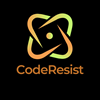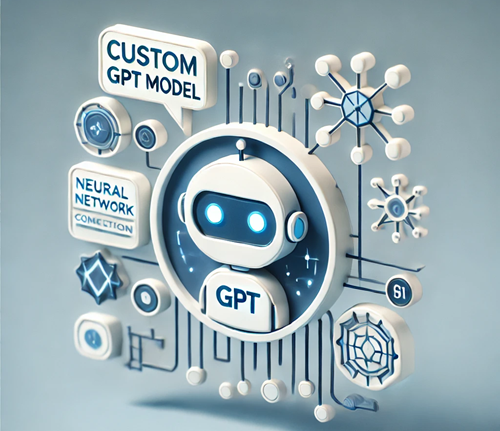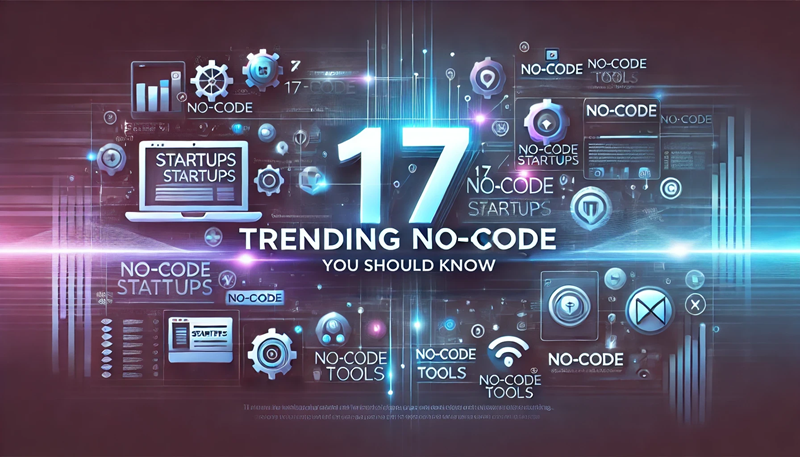The no-code revolution is reshaping industries, enabling individuals and businesses to create powerful digital solutions without writing a single line of code. Startups are at the forefront of this movement, leveraging no-code platforms to disrupt markets and solve real-world problems faster than ever before. Here’s a curated list of 17 trending no-code startups in 2025 that are making waves.
1. Stacker: Empowering Teams with No-Code Internal Tools
What Stacker Does:
Stacker enables companies to build powerful internal tools using existing data from spreadsheets and other sources.
Why It’s Trending in 2025:
- Focus on enterprise-level solutions
- Seamless integration with Airtable and Google Sheets
- Popular for building custom CRMs and dashboards
2. Softr: Simplifying Web App Development
Why Softr Stands Out:
Softr allows users to create websites, client portals, and web apps directly from Airtable.
Key Features in Demand:
- Drag-and-drop interface for web apps
- Templates for various industries
- Strong community support
3. Glide: Turning Data Into Mobile Apps
What Glide Offers:
Glide transforms spreadsheets into fully functional mobile apps in minutes.
Trending Features:
- User-friendly app-building tools
- Real-time collaboration
- Integration with data sources like Google Sheets
4. Outseta: All-in-One SaaS Business Platform
Why Outseta is Popular:
Outseta helps startups manage their entire business with no-code tools, including billing, CRM, and email marketing.
Top Benefits:
- Streamlined operations
- Affordable for early-stage companies
- No coding required
5. Thunkable: Build Cross-Platform Apps Without Coding
Why Thunkable is a Leader in 2025:
Thunkable simplifies cross-platform app development for iOS and Android, making it ideal for startups and entrepreneurs.
Popular Features:
- Intuitive drag-and-drop design
- Built-in logic and API integration
- Native app deployment
6. Adalo: No-Code Native App Development
What Adalo Brings to the Table:
Adalo empowers users to create visually stunning native apps without coding.
Why It’s Trending:
- Easy-to-use visual editor
- In-app purchases and custom databases
- Direct publishing to app stores
7. Webflow: Revolutionizing No-Code Website Design
Why Startups Love Webflow:
Webflow combines design freedom with development power, enabling stunning websites without technical knowledge.
SEO-Friendly Features:
- Built-in optimization tools
- Responsive design capabilities
- E-commerce integration
8. Bubble: Advanced Web App Development Without Code
Bubble’s Strengths:
Bubble is a powerhouse for creating complex web applications with advanced functionality.
Key Features Driving Demand:
- Fully customizable workflows
- Scalable for enterprise use
- Strong plugin ecosystem
9. Pory: Custom Portals for Community Building
What Makes Pory Unique:
Pory allows creators to build community portals, job boards, and membership sites with ease.
Trending Uses:
- Freelance portfolios
- Community-driven platforms
- Event registration systems
10. Caspio: No-Code Database App Builder
Caspio’s Role in 2025:
Caspio enables businesses to build scalable database-driven applications without coding.
Key Advantages:
- Cloud-based app creation
- Robust security features
- Visual database builder
11. Zapier: The Ultimate No-Code Automation Tool
Why Zapier is Still Leading:
Zapier connects apps and automates workflows, saving businesses time and money.
Popular Use Cases:
- Automating repetitive tasks
- Enhancing productivity with integrations
- Supporting thousands of apps
12. Parabola: Automating Data Workflows
What Parabola Offers:
Parabola simplifies complex data workflows, empowering teams to automate processes visually.
Trending Features:
- Data transformation tools
- Prebuilt automation templates
- Real-time updates
13. Airtable: The No-Code Spreadsheet for Everything
Why Airtable Remains Essential:
Airtable combines spreadsheet simplicity with database power, making it ideal for startups managing projects or content.
Key Features:
- Collaborative capabilities
- Integration with other tools
- Highly customizable templates
14. Bravo Studio: Design to Mobile App Conversion
What Bravo Studio Does:
Bravo Studio transforms Figma and Adobe XD designs into mobile apps without writing code.
Popular Features:
- Real-time preview of apps
- API integration for added functionality
- No design compromises
15. Formstack: Streamlined Workflow Automation
Why Formstack Stands Out:
Formstack automates workflows with powerful form-building tools, making it indispensable for businesses.
Trending Features:
- Advanced form customization
- Integration with CRM tools
- Workflow automation
16. Notion: From Notes to No-Code Solutions
Why Notion is Evolving:
Notion has grown beyond a note-taking app into a powerful no-code platform for creating databases and project management systems.
Key Features:
- Templates for productivity
- Team collaboration tools
- Seamless integrations
17. Retool: The Go-To No-Code Platform for Internal Tools
Why Retool is Trending:
Retool simplifies the creation of custom internal tools, making it a favorite for startups and enterprises.
Key Features:
- Drag-and-drop UI builder
- Support for API and SQL integration
- Highly customizable components
Why These Startups Are Redefining No-Code in 2025
The no-code ecosystem is thriving, with startups leveraging these platforms to innovate faster, reduce costs, and scale effectively. Key benefits include:
- Democratization of Technology: No-code tools empower non-technical users.
- Rapid Prototyping: Faster iteration and testing cycles.
- Accessibility for Small Businesses: Affordable and easy to adopt.
Final Thoughts
These 17 no-code startups are leading the charge in 2025, proving that innovation doesn’t require complex coding. Whether you’re an entrepreneur, a small business owner, or part of a larger organization, these platforms offer incredible opportunities to create, innovate, and transform ideas into reality. Stay ahead of the curve and explore the no-code tools shaping the future of technology!










